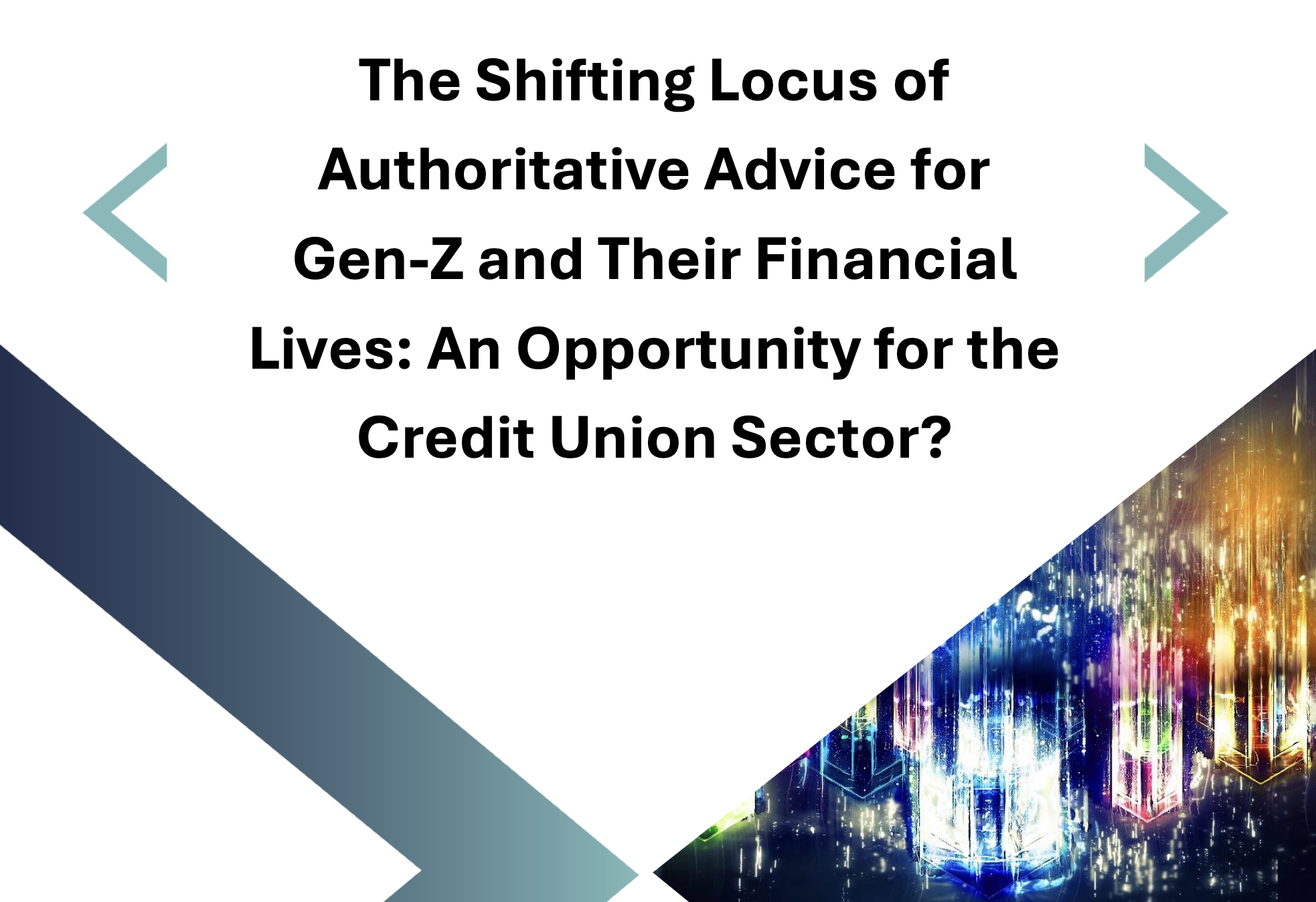The Shifting Locus of Authoritative Advice for Gen-Z and Their Financial Lives: An Opportunity for the Credit Union Sector?

Gen Z are reshaping the way financial advice is sought and acted upon. Moving away from traditional sources like family, banks, and financial advisors, younger generations are turning to social media platforms like TikTok and Instagram, where financial influencers —“finfluencers”— offer accessible, though often unregulated, advice.
While this shift has democratized financial education, it has also introduced significant risks to advice-seekers, including misinformation, high-risk investment recommendations, and a lack of regulatory oversight.
For Credit Unions, this transformation presents challenges and opportunities. Younger audiences often see traditional financial institutions such as banks as outdated, inaccessible, and misaligned with their values. However, Credit Unions, with their ethical foundations and community focus, are well- positioned to fill the trust gap created by the shortcomings of both traditional institutions and finfluencers.
By engaging with young people where they seek advice – on social media – Credit Unions can offer relatable, trustworthy, and sound financial guidance that aligns with their mission to promote financial literacy and inclusivity.
This white paper explores ways in which Credit Unions can respond to this shift in advice-seeking behaviour to revitalise and grow their memberships. Discussions with UK-based Credit Unions reveal cautious optimism about engaging in the finfluencer space, with several recognizing the potential to use social media platforms to amplify messages of fairness, community, and responsible financial management. However, barriers such as limited digital innovation capacity, regulatory concerns, and a general lack of awareness about the finfluencer phenomenon remain.
To address these challenges, we propose a coordinated approach for Credit Unions to build capacity and credibility in the digital advice ecosystem. This includes developing sectoral guidelines for engaging responsibly with finfluencers, pooling resources to experiment with digital campaigns, creating a practical playbook for social media engagement, and modernizing product offerings to align with Gen Z’s preferences for fast, convenient, and values-driven services.
By strategically entering the online advice ecosystem, Credit Unions can not only mitigate the risks of misinformation but also position themselves as a trusted alternative to both traditional institutions and unregulated finfluencers. This approach offers a pathway for Credit Unions to expand their membership, strengthen their community impact, and secure their relevance in an increasingly digital world.



